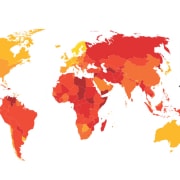|
Getting your Trinity Audio player ready...
|
By Kwazi Dlamini
As the nation settled in to a strict lockdown in March 2020, put in place to curb the spread of the novel coronavirus, President Cyril Ramaphosa made a promise to the public; the promise was that government would help those severely affected by the lockdown, and it would protect the funds put in place to achieve this. These funds were allocated to bolster the medical response and assist the hungry and needy, social grantees, and employees who lost income because of the pandemic and the regulations limiting economic activities. In the latter instance, the president introduced the Temporary Employer/ Employee Relief Scheme (TERS).
It comes as no surprise that, during the pandemic, these funds were evidently misappropriated by some who could not resist the temptation. Corruption Watch (CW) received, before the end of November 2020, over 100 reports of alleged corruption relating to TERS – the findings of which are presented in our new report released today, Covid-19 TERS: Corruption at Work.
Most of the allegations reported to CW referred to employers either registering employees for TERS but not paying the employees when the pay-outs arrived, or companies claiming on behalf of the employees but giving them only a fraction of the money due to them. Certain unscrupulous companies gave the pay-outs to employees as loans that their staff would have to pay back.
Claims and counter-claims
One Mxolisi* left his employment to join a company called Xinergistix with the hope of having a stable job, but this dream was short-lived. After only two months with the company, he was served with a letter telling him that his services would no longer be needed because of the effects of the pandemic. Mxolisi worked for Xinergistix from March 2020 to April 2020. In March, he received a salary of R12 687 as per the contract agreement. In April, however, he received only R2 649.
Mxolisi claims that this left him in debt; he was unemployed for six months while his wife supported him and their six children. He had worked for almost two years for the previous company before Xinergistix and feels hard done by. Xinergistix released him because of his persistent questions regarding TERS payments, he believes.
However, Xinergistix told a different story. “We deny these allegations. Due to the Covid-19 pandemic and the lockdown imposed in terms of the Disaster Management Act, employees of Xinergistix Management Services (Pty) Ltd sustained losses in income. The impacted employees were informed that Xinergistix would, as their employer, make applications on their behalf to TERS for any benefits that may be due. Applications were duly made and Xinergistix received payments from TERS on behalf of the impacted employees.”
Xinergistix further explained that employees were not entitled to receive TERS benefits that result in them exceeding their original salary. Xinergistix says the company repaid TERS benefits that exceeded the employees’ salary back to TERS and this was explained to all affected employees.
The company added that any non-renewal of employment contracts was due to valid operational requirements, and in this it followed due process.
Employers withholding TERS pay-outs
Similarly to Mxolisi’s case, most reports (88%) CW received were from employees who had their salaries significantly reduced although the Department of Labour website reflected the money due to them (employees) had been paid.
Another disturbing complaint sent to CW alleged that a bogus company based in Centurion used stolen South African identity documents to claim TERS funds. Regarding a media inquiry CW sent to Industrial Development Corporation (IDC), which plays an oversight role over the Small Enterprise Finance Agency (SEFA), IDC said it was not aware of the allegations until the correspondence from CW. It would, therefore, formally bring the complaint to SEFA’s attention for further internal investigation.
AGSA finds system weaknesses within government
Auditor-General Tsakani Maluleke received reports of a similar nature. The Auditor-General of South Africa (AGSA) had managed to recover R3.4-billion of funds disbursed incorrectly, she said while presenting the second special Covid-19 audit report, released on 9 December 2020.
Maluleke said the AGSA noted system weaknesses within government such as incorrect calculations and a lack of validations.
“In its first special report, the audit office reported various incorrect TERS payments made and flagged a high number of payments that required further investigation. These payments included payouts to people who are below the legal age of employment, deceased, working in government, receiving social grants, or receiving other Unemployment Insurance Fund (UIF) benefits,” Maluleke said.
CW’s report Covid-19 TERS: Corruption at Work, based on the multiple allegations put before CW and AGSA’s findings, makes a number of critical recommends that, if implemented, will bring employees the relief many were promised and never received.
- law enforcement must investigate employers who are not paying UIF contributions to the South African Revenue Service,
- investigate cases of bribery of Department of Labour officials by employers, and
- continue to recover funds wrongly paid due to misrepresentation.








